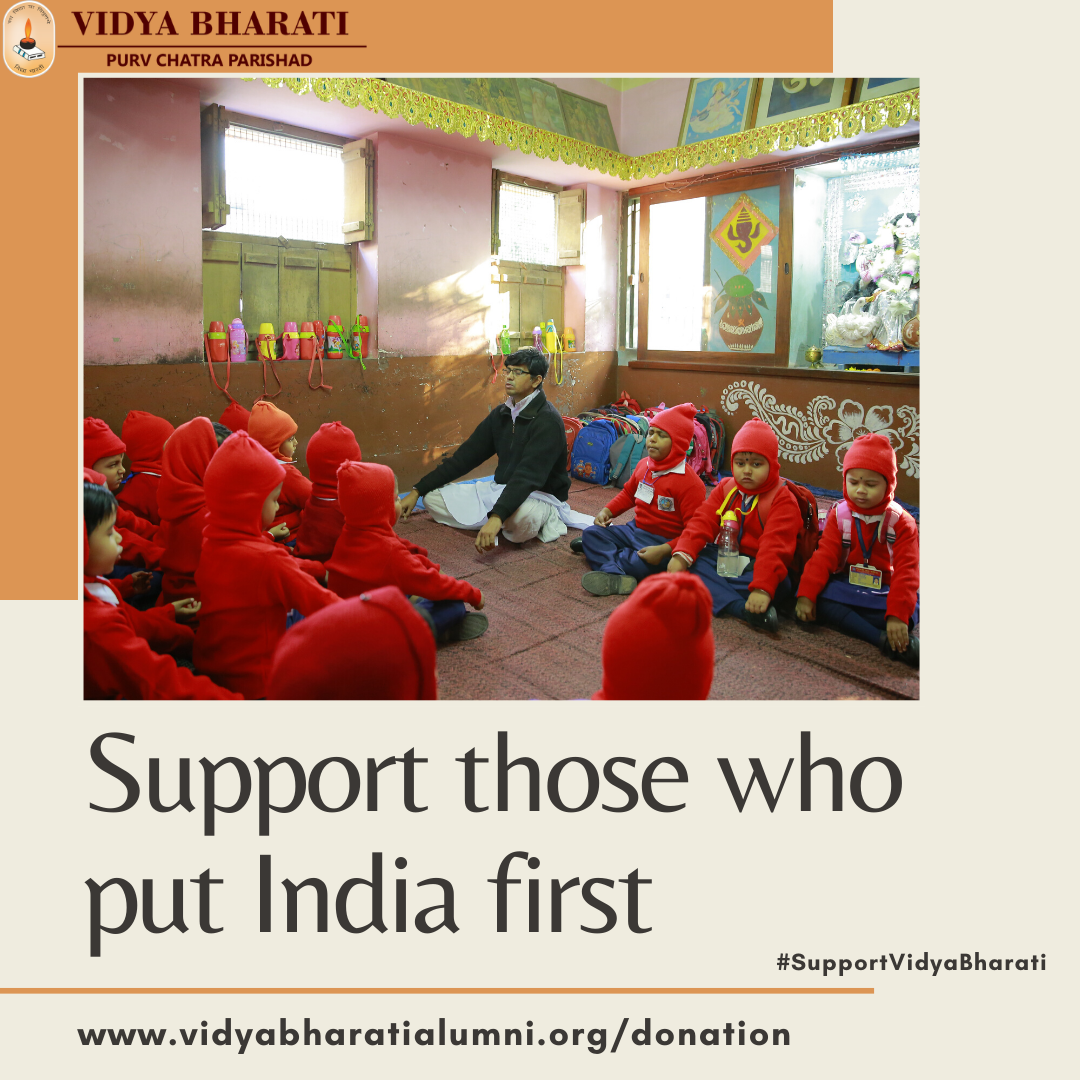Vidya Bharati schools kickoff campaigns aiming at reduction of plastic products usage
Vidya Bharati schools kickoff campaigns aiming at reduction of plastic products usage
Modern day fast faced paced and consumerist lifestyle leads to production of huge amount of waste everyday across the world. According to research the world generates approximately 2.01 billion tonnes of municipal solid waste annually, with at least 33% of that not managed in an environmentally safe manner. Looking forward, global waste is predicted to grow up to 3.40 billion tonnes by 2050.
While generation of solid waste is an unavoidable part of life, it becomes a problem when it starts to hamper the ecological balance and the health of all living beings in the vicinity. Out of all forms of solid waste generated, plastic is probably one of the most problematic pollutants. The amount of garbage in the world increases as the population grows, and disposable plastic products like water bottles, soda cans etc, accumulate over time. It can take hundreds or even thousands of years for plastic to break down, resulting in long lasting damage.
Plastic products are difficult to recycle and often leads to the items filling up the landfills and water bodies. Toxins from the plastics leach into the groundwater, soil, lakes and oceans from where it ultimately moves into the food chain or drinking water supply causing health problems. Plastic scraps can also be ingested by animals leading to their untimely death.
In India, recently the government has laid great emphasis on the elimination of single- use plastics. Trouble of using ‘single-use plastic’, especially in packaged drinking water, condiments and other products, came to the forefront during recent floods in various parts of the country this year when large quantities of plastic products washed ashore.
Vidya Bharati schools, that have always laid great emphasis on sustainable living and environmental protection, took up the cause of plastic usage reduction across the country. Two of the latest examples being Dindayal Public School, Pandusar Nabha, Punjab and Geeta Bal Bharti Sr. Sec. School, Rajgarh Colony, De lhi.
lhi.
On 27th September 2019, an event was organised focusing on 'Plastic Free Campus' in Dindayal Public School, Pandusar Nabha, where the teachers, 1400 students and school staff took an oath to spread awareness regarding the need for reduction in plastic usage. During the event cloth bags were distributed as a substitute for plastic bags. A 2 km rally in support of the cause was also organised where approximately 80 students took part along with the teachers.
 Similarly, inspired by Indian Prime Minister, Shri Narendra Modi, a campaign on ‘Say No To The Single Use Plastic’ was organised in Geeta Bal Bharti Sr. Sec. School, Rajgarh in association with Goyal Hospital and Urology Center on 20th September 2019. 350 students and 10 teachers attended this event. A special talk on the topic was given by Dr. Ajay Goyal (President Men's Health Society and Managing Director of Goyal Hospital and Urology) to the students. The school committee also took several steps to reduce the usage of plastics within the school premises. Plastic bags, water bottles and tiffin boxes were banned in the school and the students were encouraged to start using sustainable alternatives like metal lunch boxes and water bottles. The students were taught to make jute and paper bags as a substitute to single use plastic bags.
Similarly, inspired by Indian Prime Minister, Shri Narendra Modi, a campaign on ‘Say No To The Single Use Plastic’ was organised in Geeta Bal Bharti Sr. Sec. School, Rajgarh in association with Goyal Hospital and Urology Center on 20th September 2019. 350 students and 10 teachers attended this event. A special talk on the topic was given by Dr. Ajay Goyal (President Men's Health Society and Managing Director of Goyal Hospital and Urology) to the students. The school committee also took several steps to reduce the usage of plastics within the school premises. Plastic bags, water bottles and tiffin boxes were banned in the school and the students were encouraged to start using sustainable alternatives like metal lunch boxes and water bottles. The students were taught to make jute and paper bags as a substitute to single use plastic bags.
By making the students more environmentally conscious, Vidya Bharati school hopes to create more responsible citizens for the future.
If you are interested to provide any workshop or classes related to sustainability and environmental protection to Vidya Bharati students, kindly email us at info@vidyabharatialumni.org

